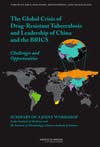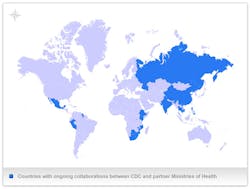Obesity is a chronic disease characterized by excess body fat, which can lead to other health problems, including insulin resistance, non-alcoholic fatty liver disease, polycystic ovary syndrome, hypertension, dyslipidemia, sleep apnea, asthma, heart attack, stroke, atherosclerosis and metabolic syndrome. Currently, obesity and dental caries are major public health concerns and dietary habits are a very important common component of their etiological factors, showing some correlation with the sociodemographic characteristics of individuals presenting these diseases.
In relation to caries experience, the literature suggests a correlation between obesity and dental caries in children and adolescents, in primary and/or permanent dentition, though divergent results exist regarding assessment based on the method recommended by the WHO (1997), i.e., restricted to carious lesions with cavitation. Some studies indicate greater prevalence of proximal carious lesions in obese adolescents compared with those with normal weight.(1)
On December 19, 2013, a new report was released. The Global Crisis of Drug-Resistant Tuberculosis and Leadership of China and the BRICS: Challenges and Opportunities - Summary of a Joint Workshop.(2) Although antibiotics to treat tuberculosis (TB) were developed in the 1950s and are effective against a majority of TB cases, resistance to these antibiotics has emerged over the years, resulting in the growing spread of drug-resistant TB.
Since 2008, the Institute of Medicine (IOM) Forum on Drug Discovery, Development, and Translation has hosted or co-hosted six domestic and international workshops to address the global crisis of drug-resistant TB. The Forum held international workshops in South Africa and Russia in 2010, and in India in 2011.(2)
On January 16-18, 2013, The IOM, along with the Institute of Microbiology of the Chinese Academy of Sciences, held a workshop to address the current status of drug-resistant TB globally and in China. Among other topics, participants at the workshop considered the opportunities for emerging leadership in drug-resistant TB control from Brazil, Russia, India, China, and South Africa (the BRICS countries), and discussed innovative strategies to advance and harmonize local and international efforts to prevent and treat drug-resistant TB. The document at this website summarizes the workshop.(2)
Tuberculosis (TB) is caused by a bacterium called Mycobacterium tuberculosis. The bacteria usually attack the lungs, but TB bacteria can attack any part of the body such as the kidney, spine, and brain. If not treated properly, TB disease can be fatal. TB is spread through the air from one person to another.
The TB bacteria are put into the air when a person with TB disease of the lungs or throat coughs, sneezes, speaks, or sings. People nearby may breathe in these bacteria and become infected. TB is NOT spread by shaking someone’s hand, sharing food or drink, touching bed linens or toilet seats, sharing toothbrushes, or kissing.
For more on TB, visit the CDC website.(3)










